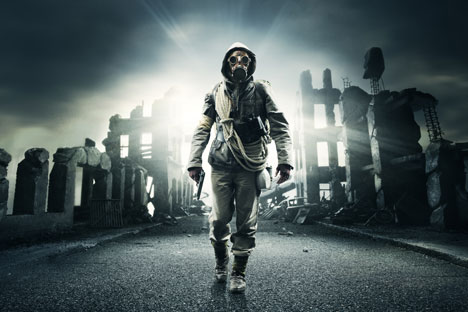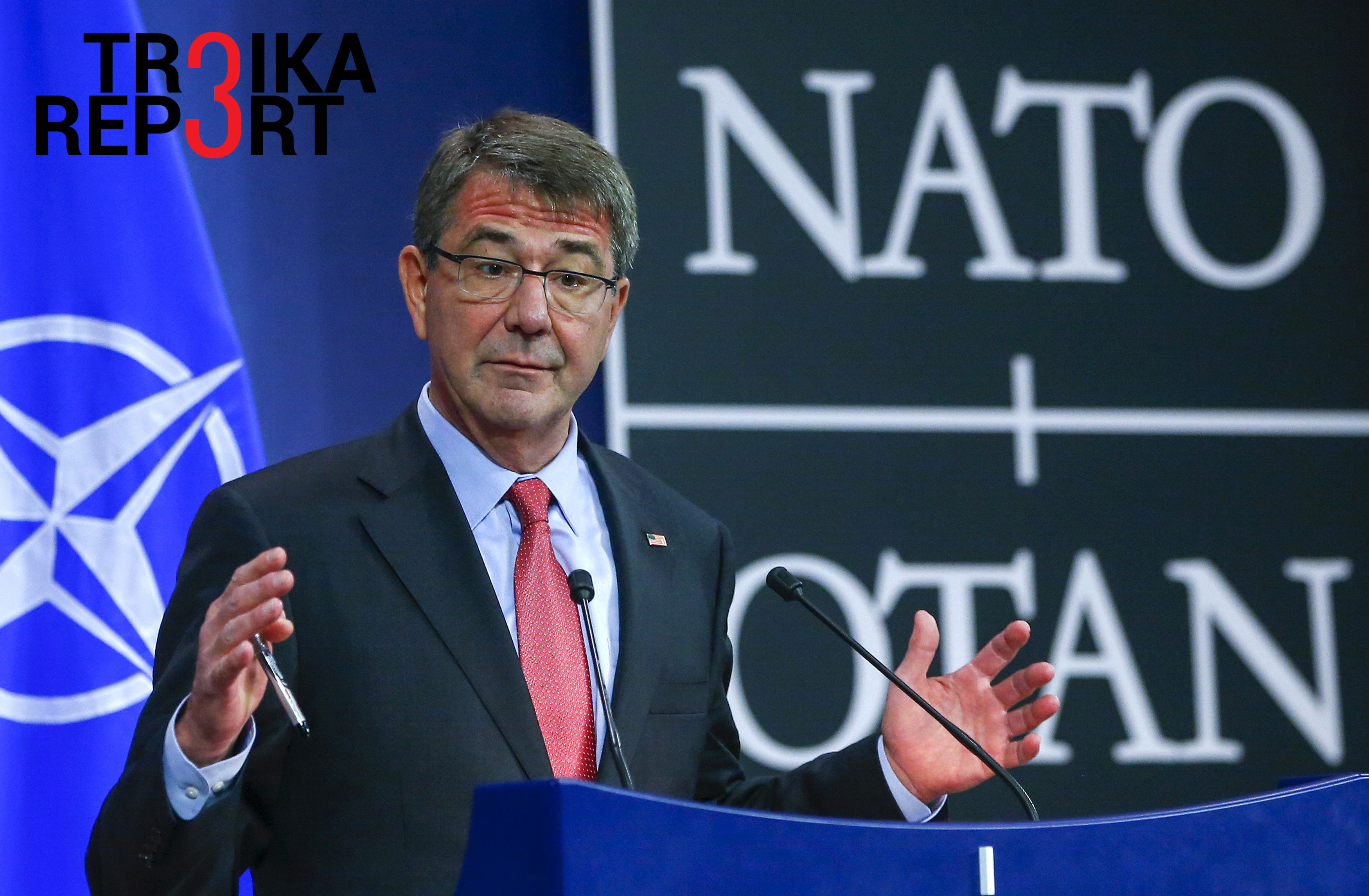Dystopia 2041: The U.S. isolated and ostracized by the East
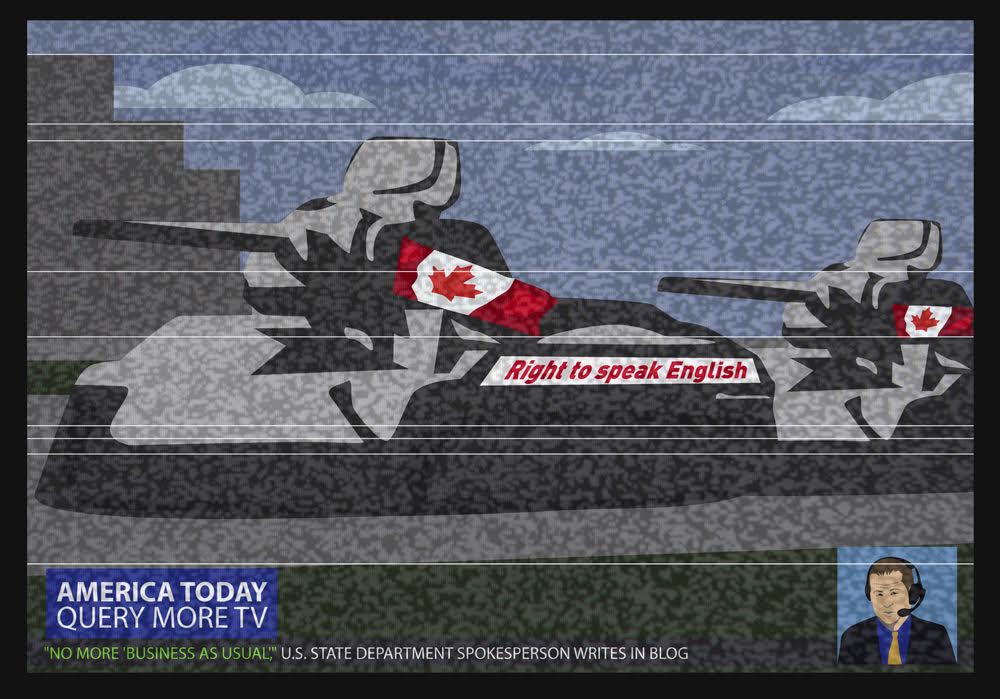
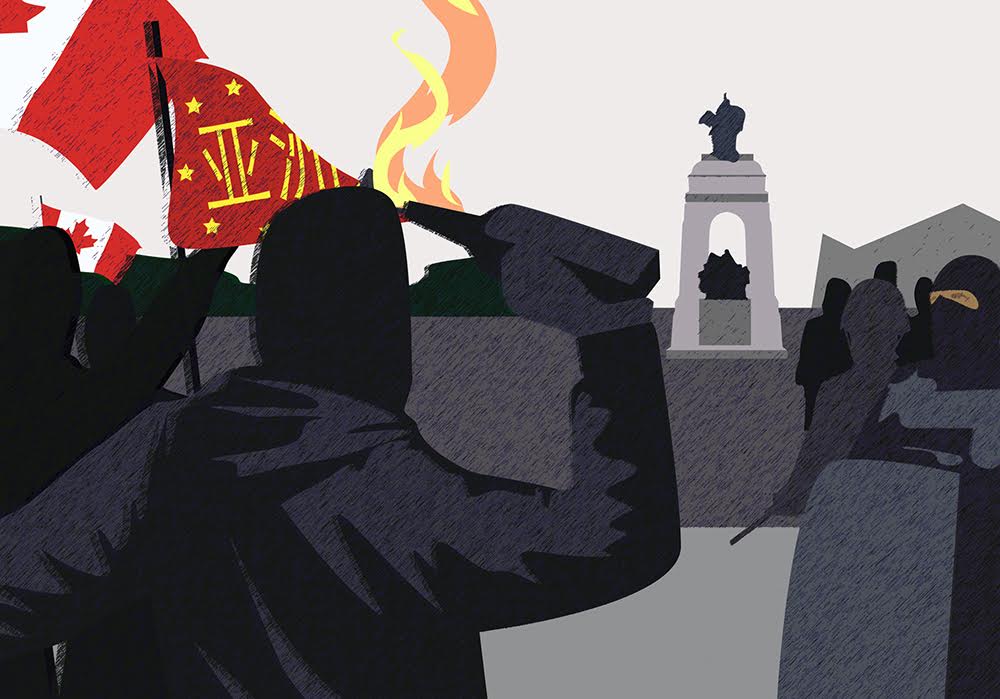 It all started with popular unrest evolved into revolt in neighboring Canada, where ultra-nationalist paramilitary units were instrumental in bringing down a legitimate prime minister and paved the way for what the U.S. saw as a coup d’état.Drawing by Alena Repkina
It all started with popular unrest evolved into revolt in neighboring Canada, where ultra-nationalist paramilitary units were instrumental in bringing down a legitimate prime minister and paved the way for what the U.S. saw as a coup d’état.Drawing by Alena Repkina
In the ungraceful year of 2041, a quarter of a century after the flamboyant incarnation of Senator Tuft, a convinced isolationist, was derailed and trumped on the final leg of the election trail, global politics have utterly spun out of control, turning the United States into an effectively besieged fortress.
It all started with popular unrest evolved into revolt in neighboring Canada, where ultra-nationalist paramilitary units were instrumental in bringing down a legitimate prime minister and paved the way for what the U.S. saw as a coup d’état.
Well-organized and financed political activists occupied the main square in Ottawa and demanded a drastic change of foreign policy alignment with an immediate signing of the association status agreement with the China-led Asian Union.
Washington accused Beijing of interfering in the internal affairs of its northern neighbor, claiming that the 35 billion renminbi (around $5 billion) reportedly disbursed “to support democracy” in Canada had been channeled to pro-East campaigners bent on rupturing all ties and contacts with the U.S. and keen on joining the China-led economic and military alliances.
Encirclement in progress
Recently, one of the most decorated and influential generals of the People’s Liberation Army of China has defined five strategic challenges, listing the United States and the United Kingdom on par with global terrorism. He branded the U.S. “a challenge and a threat” and rejected cooperation with Washington until it “respects” the rules of international law.
However, what has made the United States truly uneasy is not the confrontational rhetoric but the steady expansion of the China-led North Pacific Treaty Organization (NPTO). This alliance has already encompassed most of the Latin American regional powers like Brazil, Chile, Argentina, Venezuela, and Mexico. Remarkably, the most vociferous critics of the U.S. happen to come from minor states in Central America, like Nicaragua, Salvador, and Honduras.
The latter has explicitly declared that it joined the NPTO for the sake of getting guarantees of its independence, since one of the provisions of the alliance’s charter stipulated joint military action in case any of the member states becomes a victim of foreign aggression.
Actually, Honduras has a reputation for its staunch anti-U.S. and pro-East stance, regularly calling for additional NPTO, but mostly Chinese, troops with military hardware to be deployed on its territory.
The most worrisome speculation has circled around debates in the Chinese government on whether or not to supply sophisticated offensive weapons to the new pro-East administration in Canada.
In Ottawa, some hotheads bent on revenge have demanded retribution, referring to the war hawks around U.S. President James Madison, who initiated an assault against Canada back in the 19th century.
For the moment, Chinese top officials have turned down the idea of fueling a Cold War between Canada and the United States by supplying state-of-the art armaments and have limited military assistance to sending instructors to train the Canadian army.
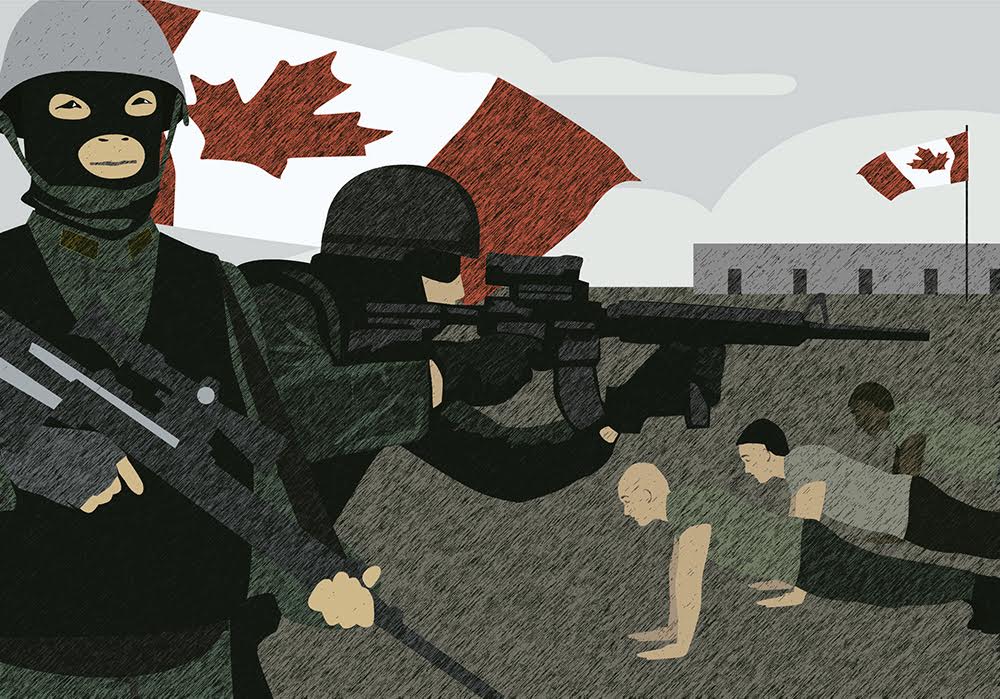 Chinese instructors are training the Canadian army.Drawing by Alena Repkina
Chinese instructors are training the Canadian army.Drawing by Alena Repkina
In this way the Chinese leaders have responded to pleas by the pro-East government in Ottawa to enhance their defense capabilities in view of what they claim is clandestine military support being rendered by the United States to Anglophone rebels in Quebec.
The English-speaking insurgents in this French-dominated province revolted and took up arms after the government of Quebec reacted to the ouster of the prime minister in Ottawa and the formation of a newly nationalist parliament by voting to prohibit the use of the English language in the province, thus trampling on the inherent rights of ethnic minorities and turning English-speaking residents of Quebec into de facto second-rate citizens.
Fearsome of the Bald Eagle
With Central American nations terrified of what they perceive as bellicose posturing by the U.S. and its readiness to engage in adventurous policy abroad while bullying its neighbors, China has declared that it is extending security guarantees to the mini states in the region, some of which have recently joined the NPTO.
China has confirmed its full commitment to act as a security provider for all the democratic nations in the region, including Canada, which many U.S. politicians have viewed throughout history and still view as “America’s backyard” and part of its sphere of strategic interests.
Moreover, it was announced at the recent meeting of ministers of defense in the capital of Guatemala that Beijing would deploy in Central America 250 MBT-3000 main battle tanks, PLL05 self-propelled mortar-howitzer systems and other military equipment.
Apart from the military hardware depots, China is to triple its rapid reaction forces in the region and create six coordinating headquarters in Central America, notably in Nicaragua, Guatemala, Honduras, Costa Rica, Panama, and Cuba by the end of the year.
The latest gathering took place against a strong campaign launched in the pro-government media of Honduras to portray the United States as an unruly bully that presents an existential threat to all democratic nations. Honduras has long been noted for a centuries-old animosity toward its imposing northern neighbor.
War of words and war of nerves
Beijing has been consistently increasing diplomatic and psychological pressure on Washington, having launched a full-fledged information war, which is backed up by the reportedly 50.000-strong team of government-employed hackers.
Without resorting to the oldspeak like the infamous label “Evil Empire,” the Chinese propaganda machine has mocked the deficiencies of the American election procedures and vilified the omnipotence of the ruling financial oligarchy.
One of the latest denigratory terms attributed to the gradually debilitating potential of the United States was the rebranded expression “a disunited Bangladesh with missiles.”
Concurrently, the NPTO general secretary has urged the alliance to remain vigilant and monitor all the covert subversive activities by pro-U.S. militants in Canada and in Central America. The real danger is in the undeclared hybrid war being conducted by Washington, the NPTO chief, a national of Honduras, has warned.
The warning was not especially necessary. There has been an ongoing outcry among conservative politicians in Canada and Central America on their own failure to put up a viable resistance and block the outreach of U.S.-disseminated false interpretations of global news. This untruth is produced by the U.S. official media, in particular, the TV channel America Today, broadcasting in Chinese, English and Spanish under a slogan of “Query More.”
 Drawing by Alena Repkina
Drawing by Alena Repkina
Concurrently, the Chinese Human Rights Sentinel organization has upped its accusations that Washington is meddling in the affairs of Canada on the grounds of common heritage, common language, historical and cultural bonds.
Lately, Canada has joined the Central American republics in calling on both the Asian Union and NPTO to set up a cohesive and effective information service to start broadcasting in American English in order to counter U.S. “propaganda” and “psychological warfare.”
‘New abnormality’ deserves defiance
Recently, the United States rejected calls to abandon its present foreign policy and, once this precondition is met, to re-join the major world powers. The U.S. administration believes that the East is guilty of using every trick in the book, from bullying to recruiting agents of influence, to ensure its dominant position in global affairs.
“There will be no more ‘business as usual’,” the U.S. State Department spokesperson stressed in his blog.
In fact, he was echoing the statement of the head of U.S. foreign policy that the war of sanctions that has seen finances being used as a political weapon, the creeping deployment of additional Chinese units and military equipment close to U.S. borders, as well as the overall disregard of legitimate U.S. security concerns constitute a structural crisis in international relations.
The U.S. administration has made it crystal clear that what some pundits label as the “new abnormality” will not meet the approval of Washington. The United States has shown “defiance in defeat” on many occasions in its rich and turbulent history, and there is no reason why it will not display the same level of resilience now.
Given the attempts of the China-led Asian Union and NPTO to turn America into a besieged fortress and sever its interaction with non-aligned members of the global community, Washington will find an asymmetrical response to this unfriendly policy and mistreatment.
The government of the United States stands firm in its belief that imposition on any nation of so-called “Eastern values” by use of force or hybrid warfare is a blatant breach of the letter and spirit of international law.
It has been reported that a new U.S. foreign policy concept rooted in the concept of developing a “polycentric architecture” for the world is being now designed.
* * *
Disclaimer: Any resemblance to real persons, living or dead is purely coincidental. All characters and situations are fictitious. The scenario described in this feature story is solely the conjecture of the author.
The opinion of the writer may not necessarily reflect the position of RBTH or its staff.
Special section: Troika Report>>>
Subscribe to get the hand picked best stories every week
All rights reserved by Rossiyskaya Gazeta.
Subscribe
to our newsletter!
Get the week's best stories straight to your inbox
